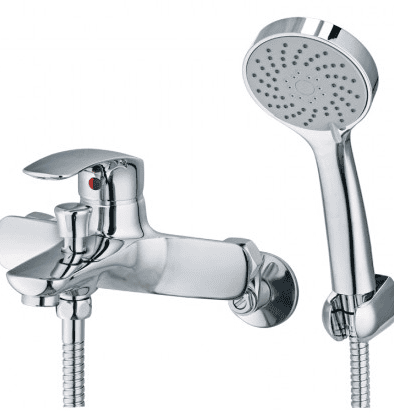This is an automatically translated article.
Snoring is a common condition that causes sufferers to complain or tease without knowing it or realizing it. Many people think of snoring as an annoying habit, but it can actually signal a serious health problem. So what should people with snoring do to stop?
1. What causes you to snore?
Snoring is caused by the rapid passage of inhaled air through the relaxing tissues in the throat, causing them to vibrate. Snoring is very common, affecting about half of all adults. Factors such as weight, health and mouth shape... can cause you to make different strange sounds during the night. Some reasons why you snore and specific cures for each specific case are as follows:
1.1. Stuffy nose
All breathing problems that prevent you from breathing through your nose can cause snoring. For example, a stuffy nose caused by a cold, flu, or allergies. Over-the-counter medications or decongestant patches work to open the airways, both as a treatment and as a way to sleep without snoring. However, see your doctor if you have a stuffy nose that doesn't go away for weeks at a time.
1.2. Lying on your back while sleeping
This position can make you snore or make snoring worse. The best way to sleep without snoring is to sleep on your side, or turn to hug your partner if you both sleep together (the spoon position). You can also try adding 2-3 pillows stacked on top of each other to create a narrow space, avoid sleeping on your back. If that doesn't work, sew a small pocket to the back of the shirt, then put a tennis ball in it. This obstruction will cause discomfort every time you lie on your back.

Hạn chế nằm ngửa khi ngủ sẽ giúp bạn tránh ngủ ngáy
1.3. Shape of the nose
Nose plays an important role in determining whether you snore or not. When the thin septum between the two nostrils is deviated, meaning one side is smaller than the other, it can make breathing difficult and cause snoring. The same can happen if your nose is damaged in an accident. If you suspect you have a deviated septum in your nose, you need to see a medical facility to be sure. In some cases, surgery can correct the condition.
1.4. Shape of the mouth
If the soft part of your mouth and throat is low and thick, it will narrow your airways and create snoring. If the uvula on your throat is longer than usual, it can also lead to snoring. These oral features are usually congenital, but they will get worse if you are overweight. Sometimes surgery will be the answer to this must-do case of snoring.
1.5. Some drugs
Medicines that make you sleepy (sedatives), muscle relaxants and some antidepressants ... work to relax the tongue and the muscles in the throat. Certain other medications also contribute to weight gain, which in turn aggravates snoring and sleep apnea. If you are taking any of the medications listed above and are complaining of snoring while sleeping, talk to your doctor about changing your medications and treatments.

Một số loại thuốc gây tăng cân và ngủ ngáy
1.6. Sleep apnea
Snoring can be a warning sign of a more serious condition, called sleep apnea. This phenomenon causes you to repeatedly stop breathing for short periods of time while you are sleeping, creating gasps or waking you up during the night. Signs of this syndrome include dry mouth, headache, or sore throat in the morning.
Sleep apnea can be linked to stroke, high blood pressure, and heart disease, so see your doctor if you think you've got this condition. Medical professionals often prescribe a breathing device during sleep or surgery in some cases.
1.7. Snoring in children
Sometimes some children will also snore while sleeping, especially if they have a cold or allergies. But in some cases, snoring can be a sign of an infection in the sinuses, throat, lungs or airways, or even sleep apnea. If you notice your child snores loudly most nights, talk to your pediatrician for advice on snoring and how to treat it.

Cảm lạnh có thể là nguyên nhân gây ngủ ngáy ở trẻ em
1.8. Snoring due to pregnancy
Pregnant women are also more likely to snore due to swollen nasal passages, making it difficult to breathe. Weight gain during pregnancy also contributes to preventing the diaphragm from pushing air out/into the lungs. In some cases, snoring can also be linked to other health problems, like gestational high blood pressure. Therefore, it is best for pregnant women to ask their obstetrician about what to do with snoring.
2. Other ways to sleep without snoring
When the snoring is loud enough to wake up your sleeping partner, they will usually tell you. But if you don't trust them or just sleep alone and want to know for sure if you snore while sleeping, turn on a voice-activated recorder before falling asleep.
When you have identified the noises that you unconsciously emit during the night, the next thought that pops into your head is definitely "What to do with snoring?". Experts have given some other useful tips that you can refer to and try to apply as follows:
2.1. Weight tracker
You are more likely to snore if you are overweight, especially if your neck is larger than 43cm for men or 40cm for women. As you gain weight, the neck becomes thicker and at the same time the throat tightens, causing it to narrow during sleep and produce snoring. Losing a few pounds will help keep snoring under control. Talk to your doctor about a snoring treatment plan and treatment that's right for you.

Những người béo phì có thể tăng nguy cơ ngáy khi ngủ
2.2. Cut down on alcohol
Like some drugs, alcohol also relaxes the muscles of the tongue and throat, leading to snoring. In fact, drinking alcohol before bed does not help you sleep better, but on the contrary will ruin your sleep. Alcohol dehydrates the throat, weakens the muscles and makes it easier to snore. Therefore, it is advisable to limit the consumption of alcoholic beverages, especially drinking close to bedtime.
2.3. Take a warm bath in the shower
The warm water in the shower can help clear your nose, allowing you to breathe easier and reduce your chances of snoring. Moreover, taking a warm bath in the shower before going to bed also has a relaxing effect, helping to sleep better.

Tắm vòi hoa sen giúp cải thiện chất lượng giấc ngủ
2.4. Keep the bedroom moist and clean
Look for a pair of air-purifying plants in the room and turn on a soft light when you sleep. Change pillows and sheets regularly, preferably once a week, to reduce dust and allergens build-up, especially when pets are present. Also, consider buying a humidifier and placing it in a suitable location. This will help clear your nose and stop snoring.
Many people have successfully applied the ways to sleep without snoring listed in the article and found it effective. But if you're a longtime snorer and can't figure out how to fix your snoring, see a doctor for the sake of your own health and that of your loved ones.
Reference source: webmd.com













